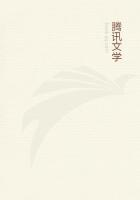For the same reason, not only must the number of the earth's revolutions round the sun up to the present time be a definite number, even though it cannot be stated, but all periodical processes of nature must have had some beginning, and all differentiation, all the multifariousness of nature which appears in succession must have its roots in one self-equal state. This state may, without involving a contradiction, have existed from eternity;but even this idea would be excluded if time in itself were composed of real parts and were not, on the contrary, merely arbitrarily divided up by our minds owing to the variety of conceivable possibilities. The case is quite different with the real, and in itself distinguished content of time; this real filling of time with distinguishable facts and the forms of being of this sphere belong, precisely because of their distinguishability, to the realm of the countable {64-65}. If we imagine a state in which no change occurs and which in its self-equality provides no differences of succession whatever, the more specialised idea of time transforms itself into the more general idea of being. What the accumulation of empty duration would mean is quite unimaginable {70}.
Thus far Herr Dühring, and he is not a little edified by the significance of these revelations. At first he hopes that they will "at least not be regarded as paltry truths" {64}; but later we find:
"Recall to your mind the extremely ****** methods by which we helped forward the concepts of infinity and their critique to a hitherto unknown import... the elements of the universal conception of space and time, which have been given such ****** form by the sharpening and deepening now effected" {427-28}.
We helped forward! The deepening and sharpening now effected! Who are "we", and when is this "now"? Who is deepening and sharpening?
"Thesis: The world has a beginning in time, and with regard to space is also limited. -- Proof: For if it is assumed that the world has no beginning in time, then an eternity must have elapsed up to every given point of time, and consequently an infinite series of successive states of things must have passed away in the world. The infinity of a series, however, consists precisely in this, that it can never be completed by means of a successive synthesis. Hence an infinite elapsed series of worlds is impossible, and consequently a beginning of the world is a necessary condition of its existence. And this was the first thing to be proved. -- With regard to the second, if the opposite is again assumed, then the world must be an infinite given total of co-existent things. Now we cannot conceive the dimensions of a quantum, which is not given within certain limits of an intuition, in any other way than by means of the synthesis of its parts, and can conceive the total of such a quantum only by means of a completed synthesis, or by the repeated addition of a unit to itself. Accordingly, to conceive the world, which fills all spaces, as a whole, the successive synthesis of the parts of an infinite world would have to be looked upon as completed; that is, an infinite time would have to be regarded as elapsed in the enumeration of all co-existing things. This is impossible. For this reason an infinite aggregate of actual things cannot be regarded as a given whole nor, therefore, as given at the same time. Hence it follows that the world is not infinite, as regards extension in space, but enclosed in limits. And this was the second thing" (to be proved).
These sentences are copied word for word from a well-known book which first appeared in 1781 and is called: Kritik der reinen Vernunft by Immanuel Kant , where all and sundry can read them, in the first part, Second Division, Book II, Chapter II, Section II: The First Antinomy of Pure Reason.
So that Herr Dühring's fame rests solely on his having tacked on the name -- Law of Definite Number -- to an idea expressed by Kant, and on having made the discovery that there was once a time when as yet there was no time, though there was a world. As regards all the rest, that is, anything in Herr Dühring's exegesis which has some meaning, "We"-- is Immanuel Kant, and the "now" is only ninety-five years ago. Certainly "extremely ******"! Remarkable "hitherto unknown import"!
Kant, however, does not at all claim that the above propositions are established by his proof. On the contrary; on the opposite page he states and proves the reverse: that the world has no beginning in time and no end in space; and it is precisely in this that he finds the antinomy, the insoluble contradiction, that the one is just as demonstrable as the other. People of smaller calibre might perhaps fuel a little doubt here on account of "a Kant" having found an insoluble difficulty. But not so our valiant fabricator of "from the ground up original conclusions and views" {D. Ph. 525}; he indefatigably copies down as much of Kant's antinomy as suits his purpose, and throws the rest aside.














